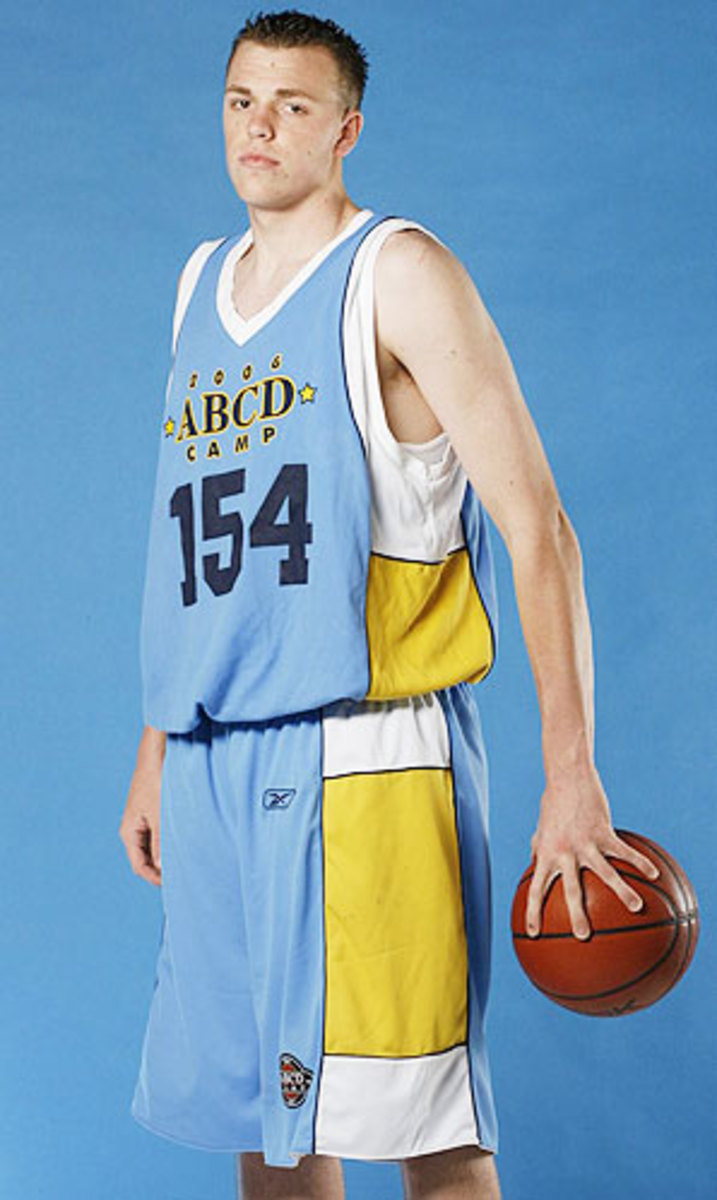
King's father reflects on his son's early commitment; more notes
King, from Huntington Beach, Calif., has noticed that it's no longer an anomaly to see college coaches actively courting a middle schooler or a ninth grader. In the past seven days, Kentucky has accepted commitments from an eighth-grader and a ninth-grader. In 2006 and 2007, USC took commitments from eighth-graders. In recent years, Arizona has offered scholarships to players during the summer between seventh and eighth grade. But knowing what he knows now, if King had it to do over again, would he allow his son to commit so early?
"Unequivocally," King said, "no."
King said that while UCLA coaches offered the scholarship, they didn't apply any pressure for Taylor to commit. Taylor accepted, his father said, because the Kings got caught up in the mystique of UCLA. Looking back, Steve King wonders if he wasn't more spellbound than his son. "In this particular case, in all honesty, it was more my decision than it was his -- or my influence, let's put it that way," Steve said.
Steve King said that before they allow their children to commit, parents of top recruits should consider several factors. As a player goes through puberty, his body changes. His style of play may have to change with it, and at 18 he may no longer fit at the school that seemed perfect when he was 14. Also, King says players who commit so young have no way of knowing how many times the roster might turn over at their chosen school. By their junior or senior year, they can make an educated guess at whether they'll fit in with their teammates.
"In retrospect, there is a lot to be said about the process," King said. "Let's face it. These kids in eighth grade who are making these decisions, the kids aren't making those decisions. The parents are."
King said he offered his critique of his own decision because he hopes it will help other parents in the same situation. He said there is too much at stake to allow a child to make a life-altering decision without the maturity and the information required to make that decision. "It puts them in a place at a very young age where they don't need to be," King said. "Kids need to be allowed to be kids."
As Kalispell, Mont., two-sport star Brock Osweiler sat in his third-period advanced multimedia class last week, he had a revelation. Osweiler, a 6-foot-8 quarterback/power forward, had wrestled for months with the question of what sport he would pursue in college. In a flash, he knew the answer to that question. He also had the answer to the next question: Which school?
Osweiler, who committed as a ninth-grader to play basketball at Gonzaga, changed his mind and committed to play football at Arizona State. "I got a feeling I've never felt before in my life," Osweiler said. "Everything clicked in my head in just a split-second. All the questions I was using to try to determine a school just clicked. ... I felt so free and just relieved."
Osweiler made the decision after reading up on the recruiting classes of the schools that were recruiting him for football. He checked out Florida State, UCLA, Alabama and Arizona State. As he read about the Sun Devils, he had his epiphany. He asked his teacher if he could be excused, and he ran to the classroom of Flathead High football coach Russell McCarvel. After listening to Osweiler's reasoning, McCarvel endorsed the choice. After getting the OK from his parents, Osweiler called ASU and committed. Next came a less pleasant call. Osweiler had to tell Gonzaga coaches he'd chosen football.
"That was probably the hardest phone call I've ever had to make," Osweiler said.
Fortunately, Osweiler said, Gonzaga assistant Leon Rice reassured him that Bulldogs coaches understood his dilemma and would never want to stand in the way of his dreams. Rice also said that if Osweiler ever changed his mind and wanted to play hoops, he shouldn't hesitate to call.
Now, Osweiler must choose between football and basketball one more time. He is entertaining the notion of graduating early from high school and enrolling at ASU in January. If he does, he'll have to skip his senior season of basketball.
Brad Tinsley, the Oregon City, Ore., point guard who received an explosion of interest after obtaining a release from the letter-of-intent he signed with Pepperdine in November, has signed with Vanderbilt. Tinsley had dozens of new suitors after he went back on the market in February, and he finally whittled his list down to Vanderbilt and Wake Forest. After visiting both schools, Tinsley chose the Commodores. Tinsley said he liked the Commodores' style of play -- ball screens, and lots of them -- and he liked the chemistry with his future teammates. That young group includes rising sophomore center A.J. Ogilvy and rising junior guard Jermaine Beal.




